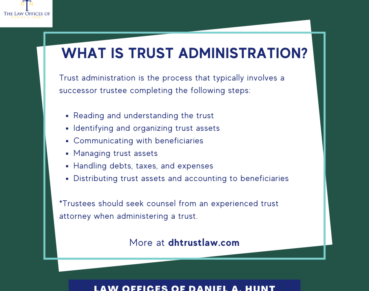When is an Estate Tax Return Required?

When a loved one dies, their estate must be administered by the trustee of their trust or the executor of their estate. The trustee or executor will be responsible for filing tax returns and paying any taxes owed to the Internal Revenue Service. If the estate exceeds a certain value, they must file a regular return and an estate tax return. In this blog post, we’ll discuss when an estate tax return is required and how to file one.
What is an Estate Tax Return?
An estate tax return is a document filed with the government to report the value of an individual’s estate after their passing. This return helps determine if any estate taxes are owed. Estate taxes are levied on the transfer of assets from the deceased to their heirs, and the return is a crucial tool for calculating the tax liability.
Estate Tax Exemption
Not every estate is subject to federal estate taxes. The threshold for requiring an estate tax return changes every year. For the 2024 tax year, the estate tax threshold is $13.61 million for one person or $27.22 million per married couple. An experienced trust attorney can inform the trustee whether this tax will be owed by the estate.
Types of Assets Included
You might be wondering what types of assets are included when calculating the value of the estate. This value includes the combined gross assets and prior taxable gifts. This may include any asset with a cash value such as:
- Real estate
- Bank accounts
- Stocks, bonds, or other investments
- Retirement accounts
- Life insurance
- Ownership shares of a business or farm
- Vehicles
- Collectibles
You may need to hire a third-party appraiser to determine the value of certain items, such as real estate, a family business or farm, or collectibles like jewelry or art.
Taxable gifts made by the deceased during their lifetime also count towards the estate value. For example: Let’s say your mother’s estate was worth $10 million when she passed away, but she had previously gifted $5 million to her grandchildren while she was alive. In this situation, an estate tax return must still be filed because the total amount is more than the $13.61 million threshold.
How to File an Estate Tax Return
The estate tax return is filed using IRS form 706. Estate tax returns are due nine months after the date the decedent passed away, but extensions are common. As with a regular income tax return, any taxes due are still due on the original deadline, even if you received an extension.
Due to the complexity involved with estates this size, you may wish to file for an extension as soon as possible to allow more time to gather all the necessary documents.
While you can technically file this form yourself, an experienced CPA can ensure the form is filed correctly and that every deduction available is utilized. If assets must be liquidated to pay the estate taxes owed, consult a financial advisor for help determining the best way to proceed.
Who Is Responsible for Paying Estate Taxes?
The person responsible for completing tax returns and paying taxes is the estate executor, or the trustee of the trust (if the decedent created one). But it’s important to note that the taxes are not paid from the trustee or executor’s personal funds but from estate assets. Any taxes owed should be paid before any assets are distributed to heirs or beneficiaries.
If the trustee or executor fails to promptly pay taxes, the IRS may charge the estate penalties and interest on the amount owed. The IRS may even place a lien against the estate and seize assets. This is why it’s critical to fulfill your fiduciary duties and address these responsibilities in a timely fashion.
Working with an experienced trust and estate administration attorney as your guide can help avoid any missteps when it comes to paying taxes as a trustee or executor.
If you have any questions about when an estate tax return is required, feel free to contact our law firm.
Law Offices of Daniel A. Hunt
The Law Offices of Daniel A. Hunt is a California law firm specializing in Estate Planning; Trust Administration & Litigation; Probate; and Conservatorships. We've helped over 10,000 clients find peace of mind. We serve clients throughout the greater Sacramento region and the state of California.




